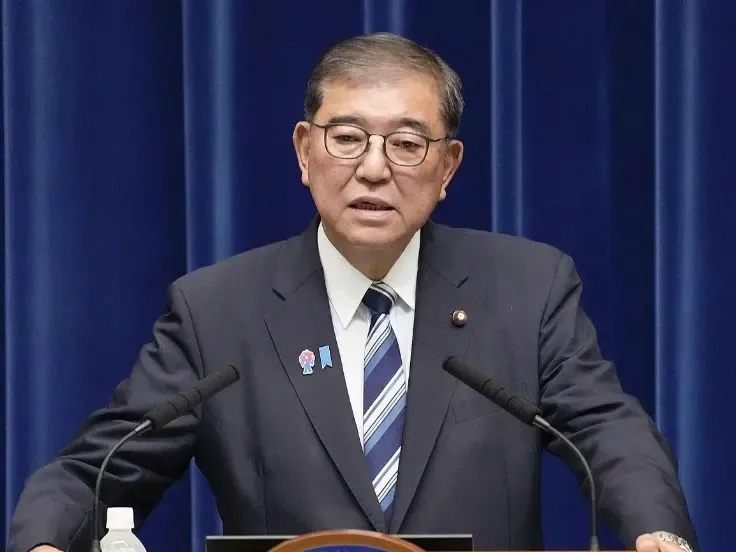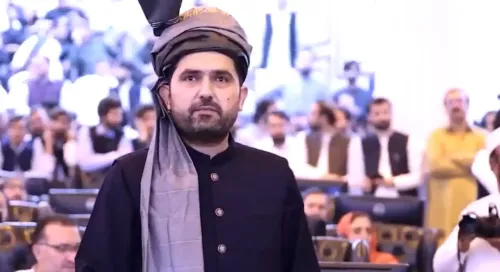Did Former Japanese PM Ishiba Justify Takaichi's Remarks on China?

Synopsis
Key Takeaways
- Strong criticism from Ishiba highlights the delicate nature of Japan-China relations.
- Takaichi's remarks have sparked significant domestic backlash.
- Japan's reliance on Chinese imports emphasizes the need for diplomatic stability.
- Ishiba advocates for a cautious approach in foreign policy.
- Japan's historical position on Taiwan remains consistent.
Tokyo, Nov 27 (NationPress) Former Japanese Prime Minister Shigeru Ishiba has once again called out current Prime Minister Sanae Takaichi for her misleading statements regarding China's Taiwan. He emphasized the necessity of fostering stable relations between Japan and China, as reported by the Mainichi Shimbun.
In a speech delivered in Tokyo on Wednesday (local time), Ishiba highlighted that since the establishment of diplomatic ties between Japan and China in 1972, successive governments have acknowledged and respected China's stance that Taiwan is an integral part of China.
"This is an aspect that should remain unchanged, and we have approached it with utmost caution," he stated.
Ishiba reiterated the critical need for maintaining effective diplomatic relations between Japan and China, pointing out that Japan currently depends on a variety of imports from China, including food, rare earth materials, and pharmaceuticals, as reported by the Xinhua News Agency, citing Mainichi Shimbun.
Takaichi expressed at a Diet meeting on November 7 that the Chinese mainland's potential "use of force on Taiwan" could pose a "survival-threatening situation" for Japan, which instantly sparked significant backlash at home.
During a television interview last Sunday, Ishiba criticized Takaichi for jeopardizing Japan-China relations with her erroneous comments, stressing that previous Japanese administrations have managed bilateral relations with great care. He urged the current government to fully comprehend Japan's longstanding position and exercise caution in future policy implementations.
Earlier on Tuesday, Japan's Permanent Representative to the United Nations, Yamazaki Kazuyuki, communicated with UN Secretary-General Antonio Guterres, insisting that China's objections to Takaichi's comments on Taiwan are factually "incorrect and without basis."
This letter followed Beijing's strong protest regarding Takaichi's statement made during a parliamentary committee meeting on November 7, where she indicated that a military action against Taiwan might lead to a "survival-threatening situation" for Japan, hinting at a possible involvement of the Japanese Self-Defence Forces.
In his correspondence to the UN chief, Kazuyuki noted, "I have observed that the Permanent Representative of China recently dispatched a letter concerning Japan to your Excellency, which was later distributed to the Permanent Missions of all United Nations Member States. The claims made by China in the letter seem inconsistent with the facts and lack substantiation, prompting me to respectfully submit this response as instructed by the Japanese Government."
"As you are aware, Japan has consistently contributed to the peace and prosperity of the global community since the conclusion of the Second World War. Japan has always upheld and adhered to international law, including the UN Charter, and has actively worked to maintain and enhance a free and open global order underpinned by the rule of law," he added.
Expressing his concerns, the Japanese envoy pointed out that certain nations in today's world are involved in the prolonged accumulation of military capabilities without transparency.
He further stated that some countries continue to seek unilateral changes to the status quo through force or coercion, despite opposition from neighboring nations.
"Japan stands against such actions and positions itself apart from them. Our fundamental defense policy is one of passive defense, which is strictly defense-oriented, contrary to the claims from the Chinese side," the letter concluded.









